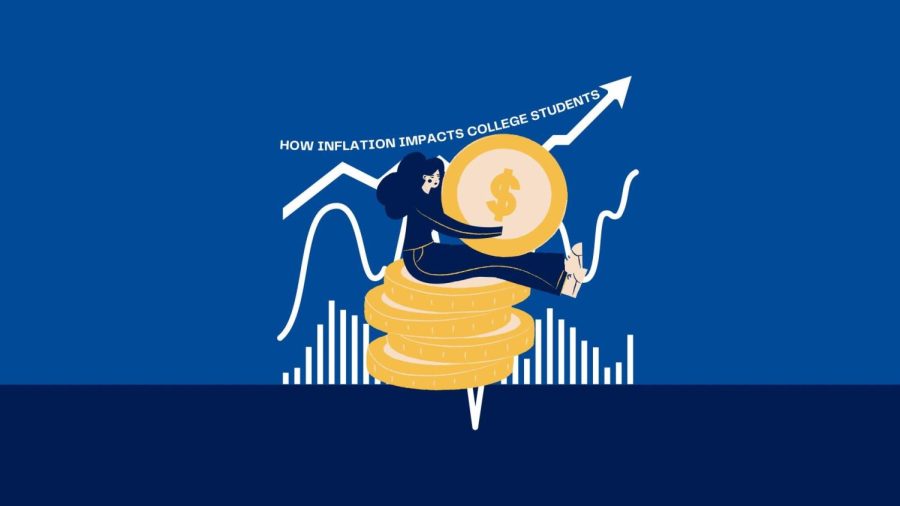We hope you brought your discipline because this is going to be tough.

To get into the Army, a cadet must take a course called land navigation. It is a military discipline of tracking through unknown terrain with the use of tools to reach a certain destination.
There are four fundamental principles: know where you are, plan the route, stay on the route, and recognize the objective.
The way to become money savvy is a whole lot like land navigation.
Lucky for you, college is your starting point on this route. And it is your financial plan that will be your plotting points to get to your objective.
Here are four steps to get you going:
1. First know your destination.
What exactly do you hope to achieve as a financial goal? For college students, that could be anything from saving $1k in six months to paying off student loans in five years (which is actually possible).
Yes, you are in college, but that can mean anything. A college freshman is most likely to have different goals than a college graduate or upper grad. Regardless of what year you’re in, just know where you are on the basis of where you have been.
Freshman to sophomore year is an exciting time to start this new academic experience, and getting a job or setting financial goals may not be deemed as a priority. But out of everything you can do, start as soon as possible! Take this time to set small goals that can prepare yourself for now, such as:
- Paying more each month on your car.
- Have at least $1k in savings by the end of each semester.
- Keep your credit card(s) in check by maintaining low balances and paying them off on time.
- Start or maintain your credit score.
If you are older and haven’t started on any of those goals, have no fear! You can use those goals, too. If you think you can handle bigger goals then check out these next recommended goals.
Junior year to senior, things are getting more serious since the real world and full independence is waiting around the corner. These two years can start aiming bigger, like:
- Pay off your car.
- If you don’t have a car, start saving for a car.
- Look for valuable equipment/tools/resources that will help you in your career.
- Start saving for that down payment, first and last, and security on an apartment.
2. Plan how you will get there.
Now that you know where you are and your plotted destination, we focus on the planning. It sounds great and all when seeing your goals, but it’s the from here-to-there part you don’t want to slack on.
You need a budget and you will need to budget.
This may be a reality check for some, but it’s important to know the current financial state you’re in to achieve your goals. This is how you make a budget:
- Collect all your financial information statements.
Even if they are digital, gather them all together to take a good look at what has been going in and out of your bank accounts. Not to be overwhelmed by the long list of transactions, try going back to at least the last three months.
Include your bills, too. - Estimate income.
If you have a job, crunch the numbers to see how much you’re making a week or bi-weekly. From there you can see how much you make each month and reflect on how much you make a year. Also, take into account the type of job you have, being part-time or full-time— is this long-term or short-term? This plays a huge factor in when you can accomplish your goals.
- Find fixed and variable expenses.
A fixed expense pertains to bills that are at a fixed amount, like a car payment, rent, and monthly subscriptions. A variable expense are those that fluctuate, like utilities, gas, how much you make it rain at Target, and groceries. Stack these up to find how much you spend on average.
- Tally it all up.
Add up your monthly income and your expenses, then subtract your expenses from your income. If your answer is a positive number, you have a cash surplus. If the total is a negative number, then you have a cash deficit. - Adjust accordingly.
Compare the totals of how much you know is going into your bank account to how much is swiftly leaving your bank account. Now that you see the numbers, adjust! Know the difference between needs and wants. That premium Spotify account- if it will get you out of that deficit- has to go. Daily grande soy cinnamon no-foam half-caff extra-hot three-pump vanilla caramel macchiato— bye, bye. Just letting go of these things will do wonders! You will be surprised by how much money you will save on those alone.
3. Stay on the path.
This is where the discipline comes in. You know where you are, you see your target, you know the plan. Now you must have the discipline to stick to it. The temptation to spend that money sitting in the bank will occur, but take heart!
Try thinking of that money as unspendable because that money is for another purpose other than getting those cute pairs of jeans from Urban Outfitters. Stay on track. And remember, this is where an accountability partner helps.
4. You’ll know it when you see it.
Achieving a goal is rewarding, and shouldn’t be looked down on. You’re in college- you are looking out for the present and future you! Perhaps you can also be an example for others in getting them closer to financial stability.
Future you will thank you for your hard work and financial sense. And once you begin setting goals, it’s only up and onward.
If you have any money questions you need a money answer to, send us a message, and we’ll cover it.
__
For more information or news tips, or if you see an error in this story or have any compliments or concerns, contact editor@unfspinnaker.com.















